Sourdough and social media: Transforming the fabric of society
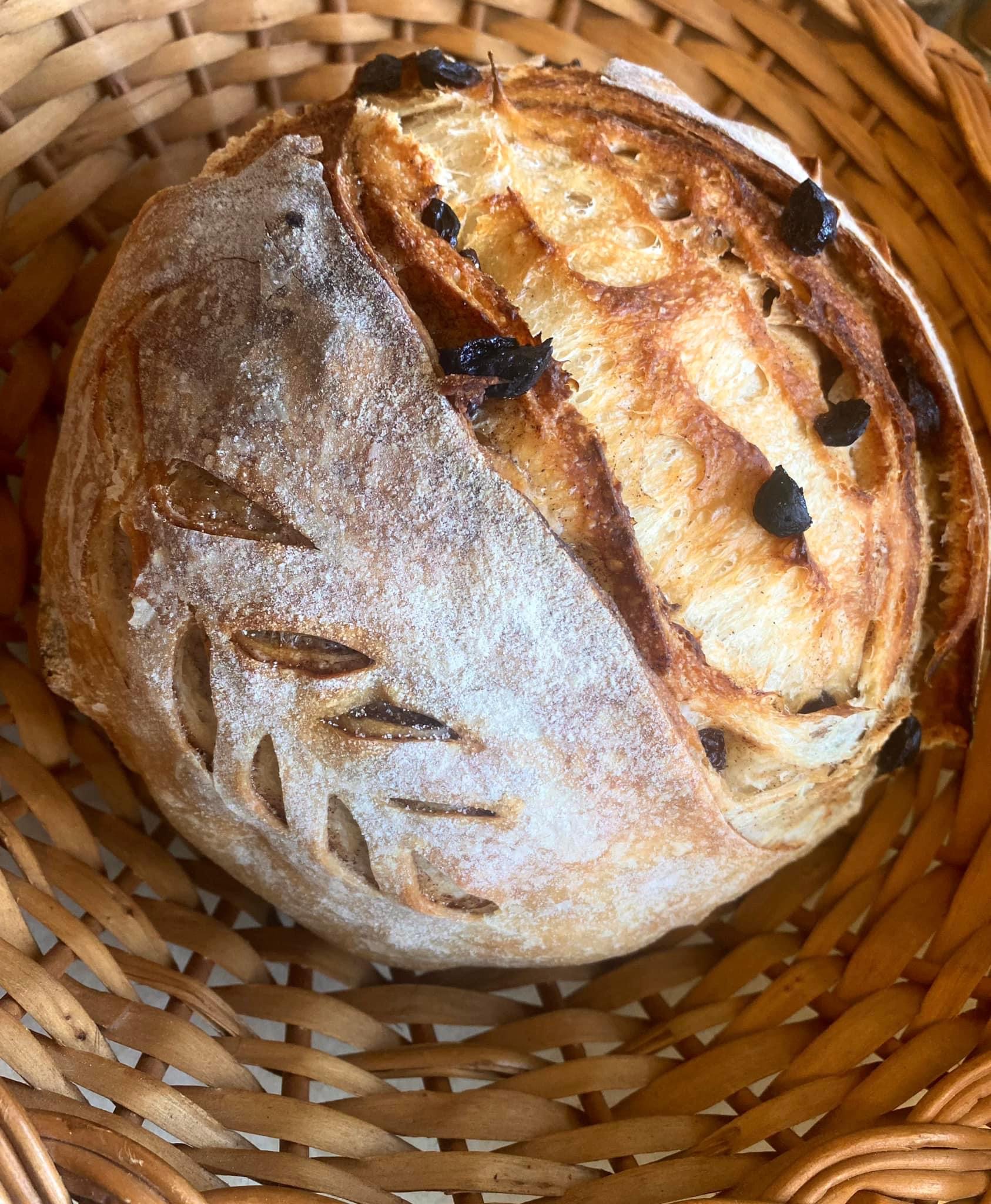
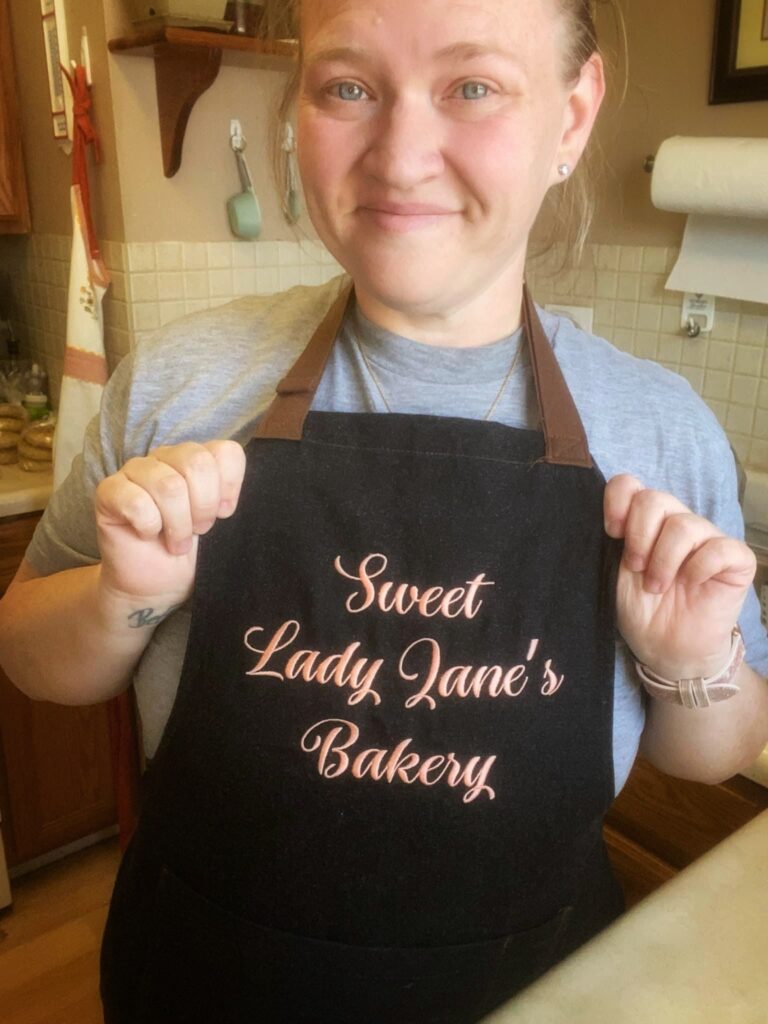
QUINCY — Not by bread alone can one just start a sourdough bakery.
A starter, some skill and a cottage license are all necessary ingredients when running a microbakery out of your kitchen. Lindsey Wellman checked those steps off the list and has been busy baking this project with love and care since July of last year. Now that the bakery is open for business online, she is finally ready to make her public debut.
Sweet Lady Jane’s Bakery’s will be at the 217 Day event on Saturday at Quincy Brewing Company, 110 N. Sixth, to sell her delicious sourdough delicacies.
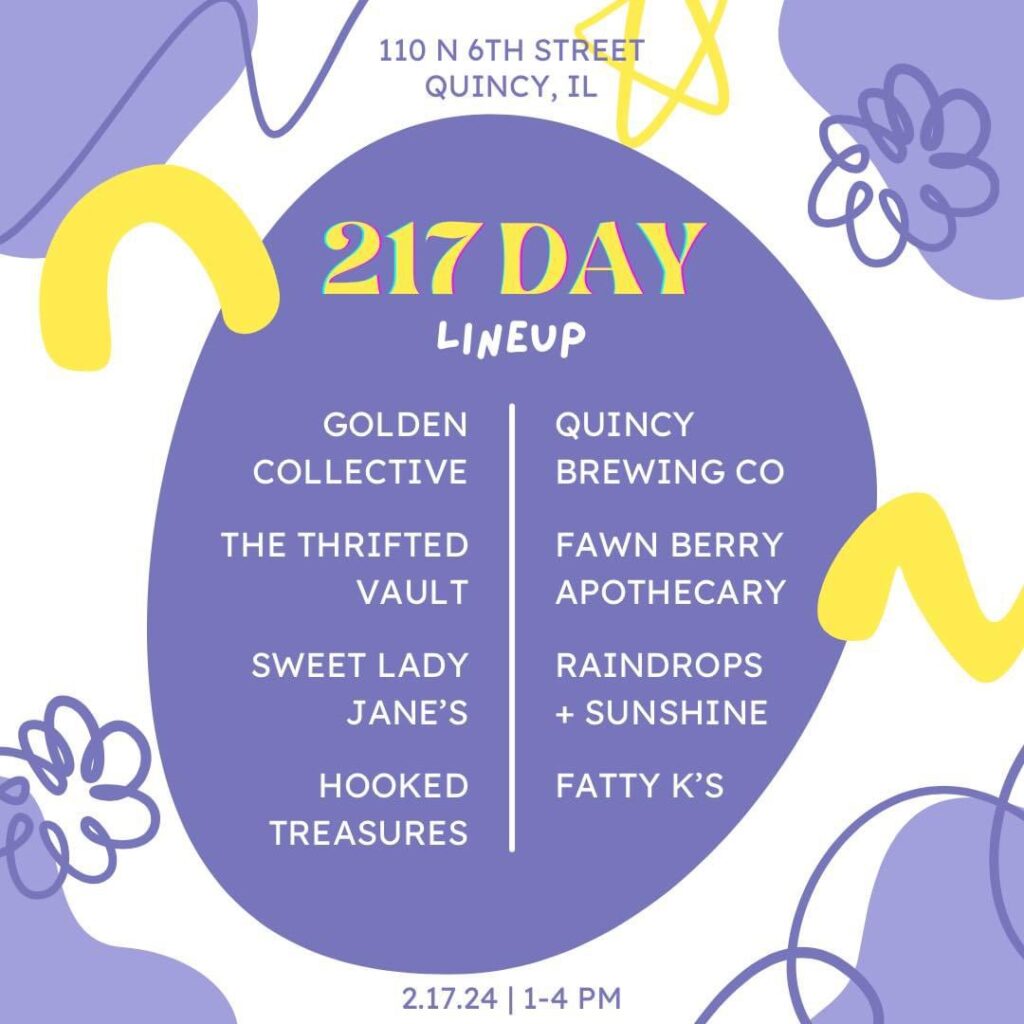
217 Day is an event founded by Golden Collective, that serves to celebrate small businesses in the 217-area code. The first annual event kicks off with a sip and shop from 1-4pm where locals can view some Quincy made vendors all under one roof.
Quincy Brewing (QBCo) owner Tieraney Craig is looking forward to being the co-host of the event with Golden Collective.
“Community is at the heart of QBCo, so if there’s a holiday celebrating Quincy (and all our area code), we’re in,” she said. “We believe in supporting our other local small business friends which includes one of our newest – Sweet Lady Jane’s Bakery. We’ll be one of the first in line to try Lindsey’s bread and visit all the other participating vendors.”
Sweet Lady Jane’s serves a variety of different sourdoughs available through Hot Plate – an online ordering platform for independent chefs and bakers.
She regularly offers traditional sourdough loaves, a flavored loaf sometimes being chocolate or jalapeño cheddar, and now pizza crust is available. Follow her on Facebook where she keeps you updated on her menu and informed and entertained about the general subject of sourdough.
The online sourdough community is becoming more and more trendy with more people subscribing to pages through Facebook, Instagram and TikTok. Some of these people, myself included, have never baked a loaf of bread, let alone opened a Pillsbury can without jumping. It’s more than a trend though.
Some say that sourdough is the starter kit for homesteading. While Lindsey isn’t exactly preparing for the end of the world with her growing bread knowledge, she is putting Pillsbury in its place.
Lindsey’s Sourdough Story
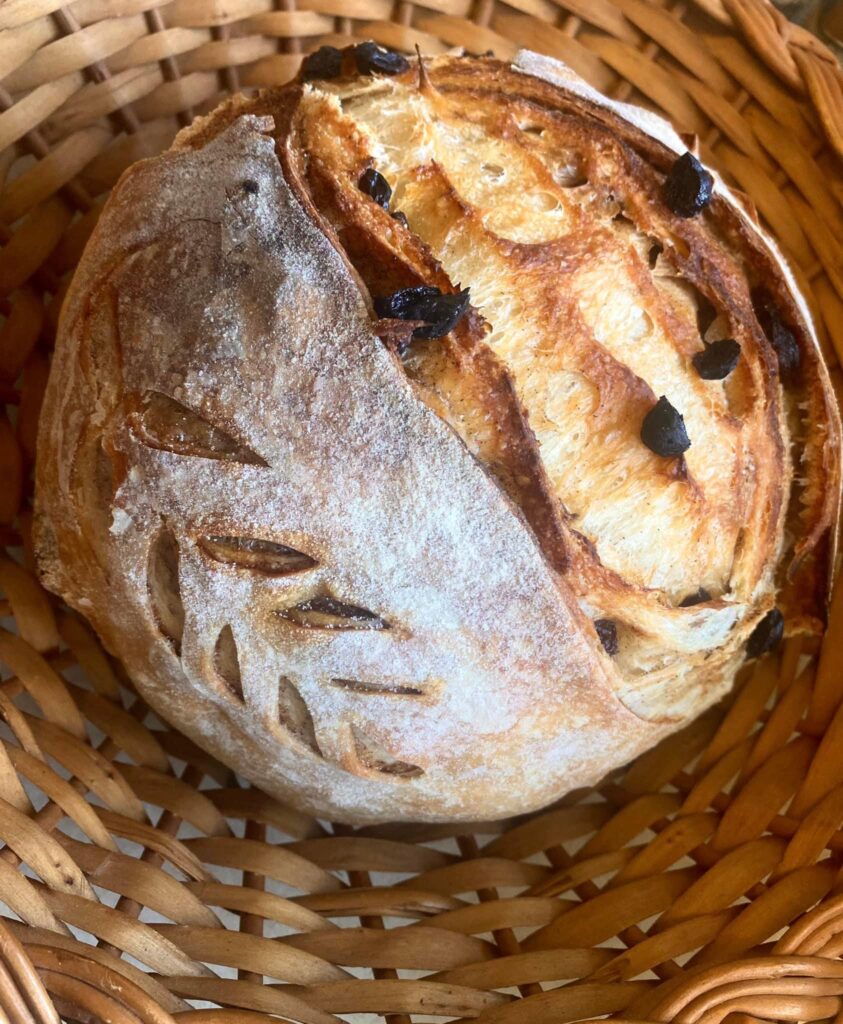
Selling sourdough as a small business owner is something Lindsey never really saw herself doing when she started her starter, “Doughly Parton” (that she calls Dolly for short), almost a year ago. A sourdough starter is a live fermented culture of fresh flour and water. It’s a mixture that you must get just right for success, and it was a process that took Lindsey about a month to perfect. She spoke about Dolly as if it were a living pet when she explained the process of feeding it while showing me around her kitchen micro bakery.
She held out a dime size dollop of dough from the starter and asked me to hold it. It was so sticky. It immediately reminded me of a Mrs. McDowell glue experiment that we did in kindergarten at St Mary’s School.
“A little dab will do ya,” was McDowell’s famous phrase. Funny, it was the same phrase I heard some buddies of mine say in Colorado decades later.
Lindsey and I spent kindergarten through 8th grade together in the very small class size consisting of mostly the same saints. The Saints were our mascot. We weren’t actually canonized. Although Lindsey could probably be considered one in my book. We were two of ten growing pre-pubescent girls in a world before Tina Fey guided the way. Lindsey really was the nicest out of all the girls in the class. She was always happy go lucky and kind to everyone around. I’ve been fortunate enough to stay in touch with her through the years, over social media. It is there that I took notice to Lindsey’s rising sourdough story.
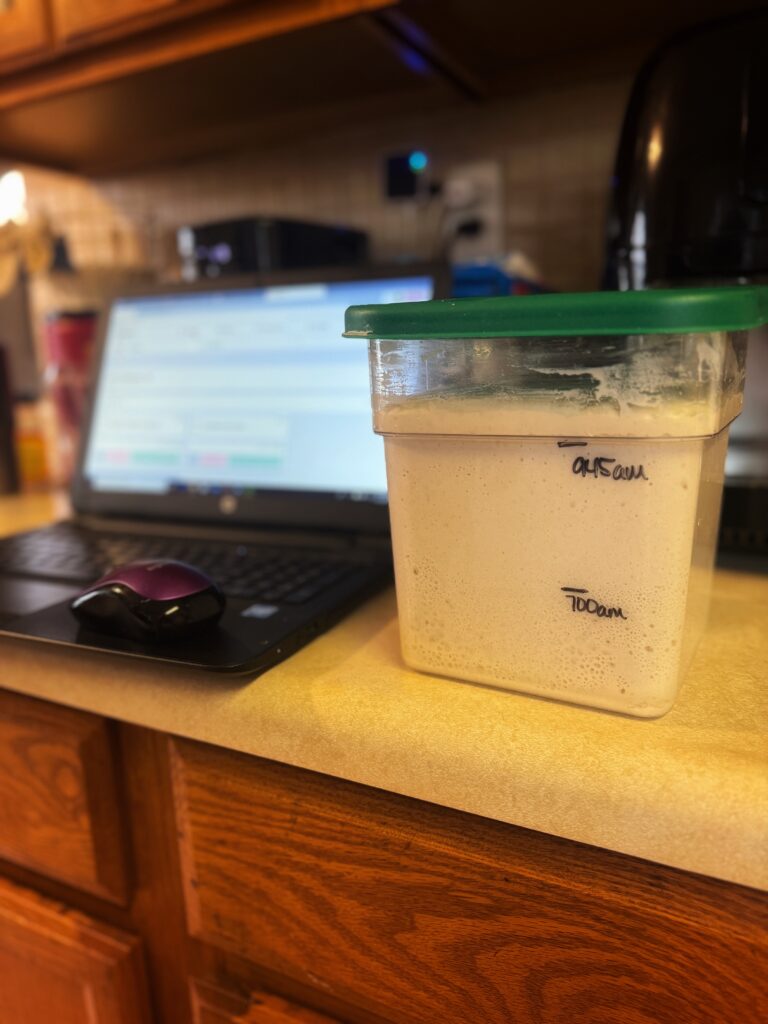
Lindsey’s story has had its sad chapters too. There in the kitchen, she opened up about a pretty long period of low. She explained how she has fought severe sadness with the loss of her younger brother, Evan Holbrook who died in a tragic car accident. Lindsey also has suffered from a lingering post-partum depression.
Prior to the birth of her daughter, Lindsey had always held a job outside of the house. She spent ten years as a CNA with Good Samaritain Home, worked for Red Cross as a phlebotomist and instructor and then later as a sales representative with Sturhahn Jewelers. All very different jobs that had one common theme and that was the people she got to interact with. Whether it was her customers or her coworkers, there were people around.
But when daycare cost outweighed income, Lindsey made the decision to become a stay-at-home mom.
“I think there is a common misconception when you say you are a stay-at-home mom,” she said. “Most people think ‘Oh my God, how lucky and leisurely it would be…and I’m over here feeling so very isolated and not heard.’”
She explained to me that it wasn’t just from a financial standpoint that they made the decision for Lindsey to stay home, but because their daughter requires a little extra special care as she is nonverbal.
She found herself regularly scrolling through social media platforms like TikTok.
Social media is a double-edged sword. On one hand it is a community. On the gloomiest day you can find sunny, beachy, videos on Instagram teeming with fun, happy, energetic people who have no choice but to hang out with you. On the other hand, it can bring you down. I mean, after all, much of it is fun, happy, and energetic people putting their best foot forward and presenting a world where everything works out in around two minutes.
Among all the noise, Lindsey came across a TikTok video about baking bread. Baking sourdough started as a healthy alternative to the processed bread she was buying in the store.
“It was a Conley Kipp video,” she said. “She was explaining how to make a loaf of bread and I just fell in love.
“Sourdough is just so good and easy on the gut. It offers so many gut benefits, especially for people with diabetes and other diseases. It’s lower on the glycemic index. It doesn’t keep your sugar high like carbs would usually with other breads that have preservatives because it’s just flour, water, and salt.”
She originally was just baking for a few friends, but then someone suggested she take her bread to farmer’s markets and that’s when she decided to make it legit. She explained the process of getting her license and certifications to legally sell her sourdough. You would think the sourdough could get you stoned with all the hoops she had to jump through. But Hell, she did make a junkie out of me once I made that sourdough switch.
It was the rabbit hole that drew her to the online sourdough community and then later to a group of small business owners from all around the world called Stronger Than Your Mind Academy. It’s a therapeutic group of female entrepreneurs under the direction of Nicola Parker. Lindsey said she is the only American in the group and Nicola refers to her as her American Butterfly. She said it with an English accent and laughed.
It gave her a sense of community and empowerment. It is a group that she credits with saving her life.
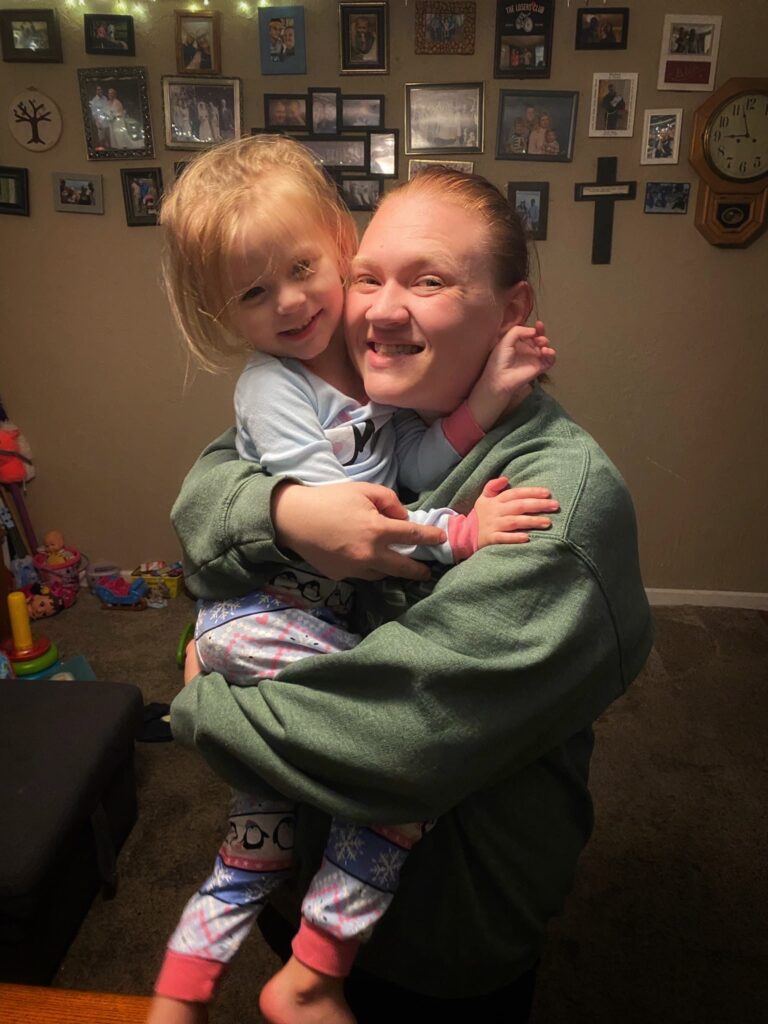
A Short History of Bread
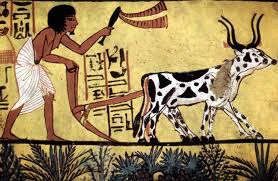
Agriculture is one of the most important things to ever happen to humans. Not since fire has a technology so completely transformed the fabric of humanity. For most of our history, humans lived in small tribes. Many were nomadic, moving from place to place to follow animal migrations and synch with the blooming and ripening of different wild plants.
Grain allowed humans to settle in one place, create communities, and thus gave rise to our modern society. Suddenly, not everyone had to hunt and gather. Some people farmed, but then others specialized in other things. They made pottery, built houses, imported goods, healed the sick, and studied the stars. They improved their understanding of their craft, giving rise to improvements in technology, the rise of science, and our modern world. They had new ideas, they wrote things down, they built huge structures, and conquered their neighbors.
That last idea is demonstrative of all technology. Innovation seldom comes as benefit alone. Grain and bread are no exception. With agriculture came new ideas about property. About what was mine and what was yours. Where hunter gatherers could tolerate another tribe on the outskirts of their long hunted territorial lands, agriculturalists were not willing to share land that had dominated so much of their time. Time spent clearing trees, tilling, and enriching soil, sowing seeds, and harvesting grain.
And so, agriculture also gave birth to warfare. For a group of hunter gatherers, the cost/benefit ratio of attacking another tribe was too far off kilter to be deemed a good idea. Attack a tribe, lose hunters, gain half a deer. That’s a bad bet. But when your entire year’s crop has just failed and you and everyone you know and love is staring down the barrel of a long and miserable winter of starvation and death, the concept of attacking and taking from another group is not only feasible… it is essential. Like social media, a double-edged sword.
Sourdough and Social Media
TikTok changed Lindsey’s life. And that’s the way it often is with new technology — especially the big, pervasive stuff. The type that gets into the culture and the fabric of society and changes the way we live, work, and interact with each other. Apps like HotPlate, Facebook, and even this MRN article will have a big effect on what her cottage bakery can accomplish. And while her ancestors would have had to plow a field, spread seeds, nurture those seeds and protect them from interlopers, Lindsey, in her modern state, has had a wholly different set of trials to navigate. Just like agriculture brought good and bad elements to humanity, so has social media. The rise of society required the emergence of warfare.
Online therapy and sourdough starter recipes requires a price as well. Maybe its teenage girls filming dances in the grocery store or just haters in the comments dogging on bread they haven’t yet tasted. Because, while the agricultural revolution gave humanity a surplus of food, and with that a surplus of time, that unstructured time hasn’t always been great for us. Humans are made to be busy. Anxiety, depression, and existential crisis are all the price we pay for too much time spent starring up at the stars. It’s easy to stare into the black mirror of apps like TikTok as a place holder for the goods and services our ancestors would have created with that time.
Lindsey took the opposite approach. She used it as a tool to find help, to find a hobby that became a passion that became a business. She used it to give more meaning and order to her life.
Theoretical physicists have long discussed the “space time loaf of bread” to explain the structure of our existence. In a nutshell, if the entire universe is the loaf, each moment of our lives can be represented by a single, thin slice. When examined, that slice would show everything happening in your local area of time. All the baking, star gazing, grocery store dancing, all the plowing, farming, and online therapy sessions. Everything.
And while the current slice you are in might be a bad one, the next slice may see everything turned around. That new slice might be the fresh start you’ve been working towards. Online orders of fresh and delicious bread, hot from the oven. The only difference is how you slice the bread.
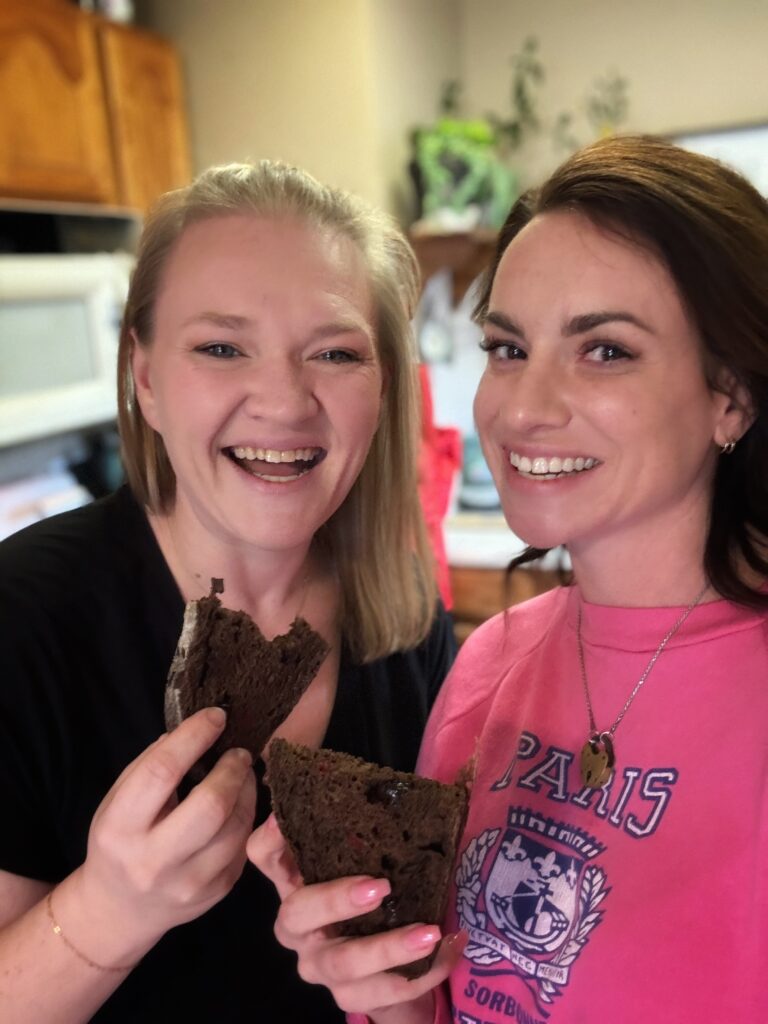
Miss Clipping Out Stories to Save for Later?
Click the Purchase Story button below to order a print of this story. We will print it for you on matte photo paper to keep forever.

